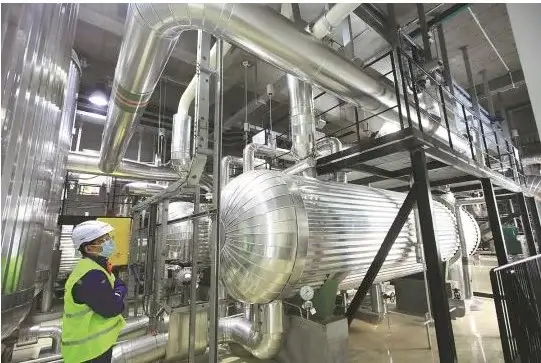Nuclear power will play a more prominent role in achieving the country's carbon neutrality goals through greater use in energy-intensive sectors, and serve as the main energy source in large-scale clean energy development.
Lu Tezhong, Assistant General Manager of the China National Nuclear Corporation and a member of the 14th National Committee of the People's Political Consultative Conference of China, called for increased use of nuclear energy in more energy-intensive sectors, from petrochemicals to steel, as well as in heating, seawater desalination and isotope production, as China is in full swing is transitioning to clean energy.
For example, high-temperature gas-cooled reactors — with high safety levels and steam parameters — can provide integrated energy solutions for industrial steam, hydrogen and electricity used in many industries, said Lu.
One high-temperature gas the cooled reactor can produce 3600 metric tons of high temperature steam per hour. Combined with thermochemical hydrogen production plants, it could help reduce carbon dioxide emissions by 3.42 million tons compared to a traditional thermal power plant. It can also be equipped with petrochemical and other industrial processes for better development, he added.
The analyst said using nuclear power for heating, steam and electricity is the preferred solution, allowing the petrochemical industry to meet the dual challenge of providing stable supply, and implement clean and low-carbon transformation.
Nuclear power is a more stable and reliable form of clean energy compared to solar and wind power, which can operate intermittently due to changing weather patterns, Lin said Boqiang, head of the China Energy Policy Research Institute, Xiamen University.
The use of nuclear energy will be an important means of stimulating China's green development. However, safety must always come first, and further efforts are still needed to improve technologies in both construction and operation, he said.
In addition to the role of nuclear power in accelerating the decarbonization of energy-intensive industries , Lu suggested using nuclear power in provinces that widely develop solar and wind power as a base load power source to maintain sustainable power generation.
According to him, China's nuclear power development should be evaluated not only from the point of in terms of number of blocks and scale, but also in terms of advances in nuclear technology and the transition to green.




